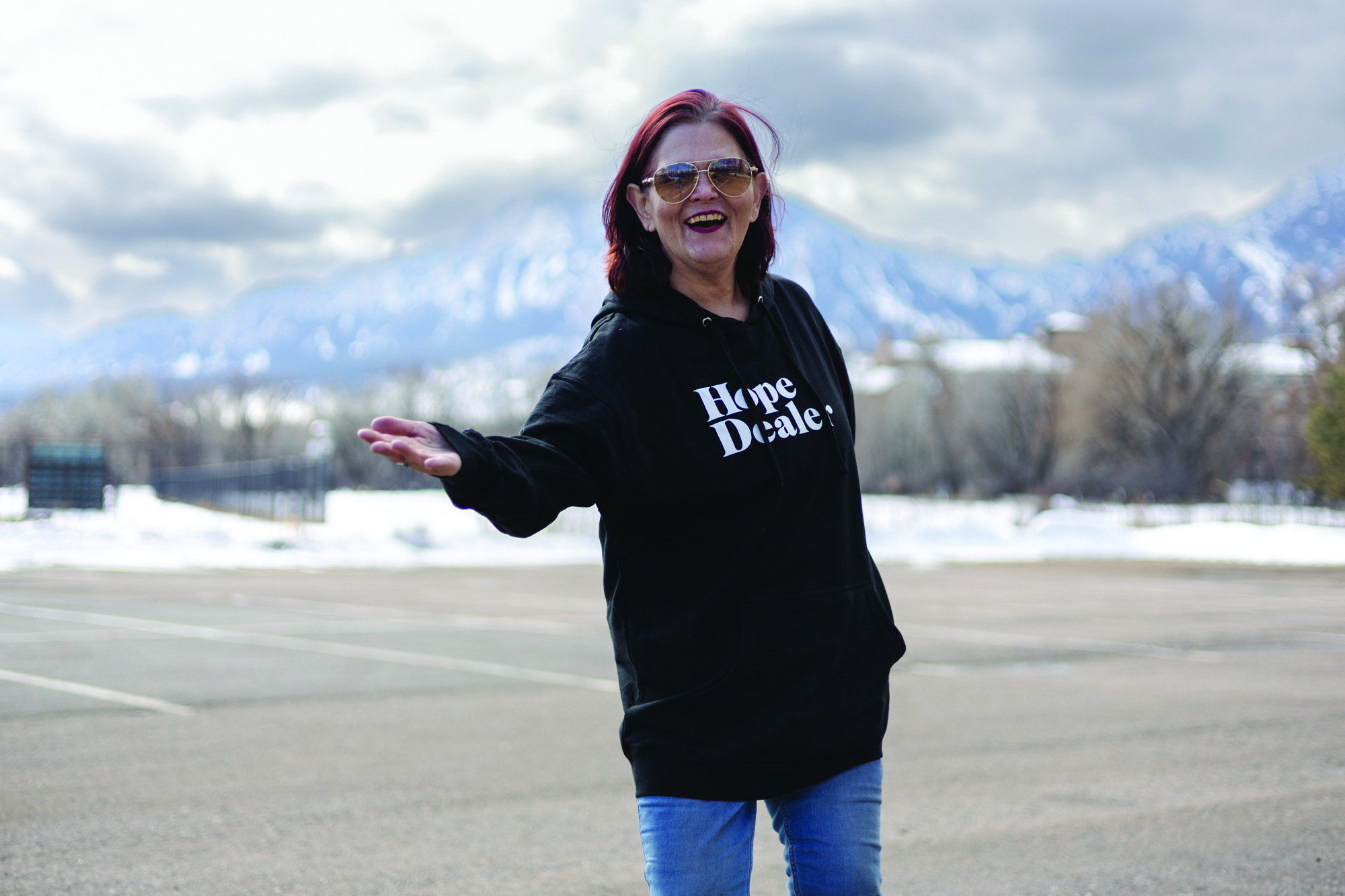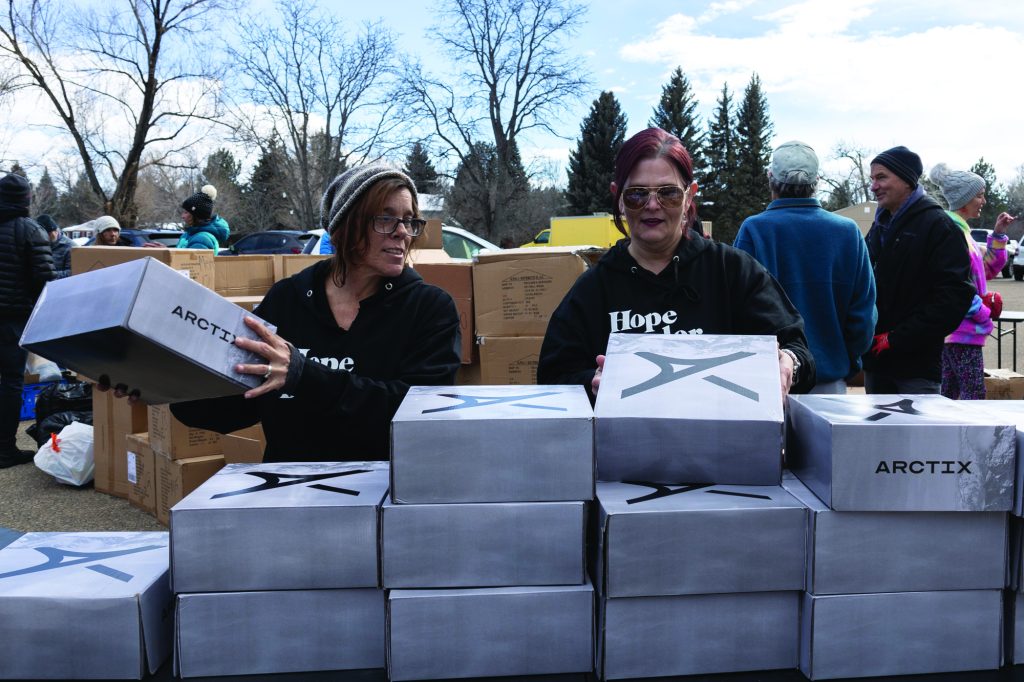
Sometimes it’s easy to pin down the exact moment a woman changes the world.
Rock climbing changed forever when Lynn Hill became the first person to free climb The Nose on El Capitan. Rolling Stone named Aretha Franklin the greatest singer of all time, twice. Marie Curie made history as the first woman to win a Nobel Prize in 1903 — and she made history again when she won another in 1911.
Despite countless examples where women’s achievements were acknowledged and rewarded, there are just as many — if not more — that weren’t. Mary Kenner, who invented sanitary napkins as we know them today, never saw a dime because the company she was working with rejected her patent when they found out she was Black. Apple never directly paid Susan Bennett for voicing Siri. Francis Crick and James Watson won Nobel Prizes after they took credit for Rosalind Franklin’s discovery of DNA.
Women’s accomplishments are far too often undermined, dismissed or forgotten entirely. But every March, we’re reminded of the incredible ladies who shaped the world we live in.
For Women’s History Month 2024, Boulder Weekly rounded up a handful of the powerful women altering the course of history right here on the Front Range. Some of them are making space for marginalized communities in a sport historically dominated by white men. One spent the last 45 years overseeing Boulder County’s media landscape. A few are hitting the pavement and providing the unhoused with life-saving provisions. Many extraordinary women aren’t in this article simply because there are only so many pages in one issue.
This month, shine a spotlight on the women in your life. Ask them how they’re feeling. Thank them for all they do. Buy them flowers, or chocolate, or — what every woman truly wants — a backcountry touring setup and a day in the mountains followed by a massive burrito and margarita from Illegal Pete’s.

“We used to be homeless. Now we fuckin’ help people.”
“Where do you sleep at night?” Angel Thorpe asked a young man.
“Under a bridge,” he replied. Thorpe waved him over to a table stocked with sleeping bags and winter coats, helping him find a pair of boots and a warm jacket.
Sunlight struggled to poke through a blanket of thick gray clouds on Feb. 9. The sky was spitting snow as members of Streetscape — the nonprofit Jennifer Livovich launched in June of 2023 — handed out bowls of chili, blankets, winter coats and snow pants. Livovich oversaw the event at St. Andrew church, firmly but lovingly making sure everyone got what they needed and then went on their way.
Livovich is a fiery redhead with “a big heart,” according to her friend and coworker Thorpe. “She really cares, and she has no problem yelling at people — which definitely makes me happy,” Thorpe says.
Originally from Indiana, Livovich landed in Boulder in 2012 after fleeing an abusive marriage. She was homeless for five years before enrolling in the Fort Lyon recovery program in southern Colorado and eventually graduating from Colorado State University with a degree in human services. From there, she started Save a Toe, distributing warm socks to people living on the streets. The initiative eventually morphed into her first nonprofit Feet Forward, which she left shortly before forming Streetscape.
“I have a whole lifetime of experience in bouncing back,” Livovich says. “I’m not going anywhere. This is my life purpose, and if I have anything to do with it, there will be many more Jen Livoviches in the city of Boulder.”

“We shouldn't be fighting for a space to belong.”
Almost four months after Jim Whittaker became the first American to summit Mount Everest, Martin Luther King Jr. delivered his iconic “I Have a Dream” speech on the marble steps of the Lincoln Memorial. In 2003, South African climber Sibusiso Vilane made history as the first Black person to stand on the highest point in the world — 40 years after King’s speech and Whittaker’s ascent.
Today, the lack of diversity in climbing is still glaringly obvious, with only 1.5% and 4.7% of USA Climbing members identifying as Black and mixed race, respectively. This discrepancy is what led Shara Zaia and Menesha Mannapperuma to co-found Cruxing in Color, a Denver-based nonprofit “connecting, supporting and empowering self-identified climbers of color.”
“Anyone who has found climbing knows the emotional and physical benefits it offers, and everyone deserves those benefits,” Zaia says. “It's more difficult for some folks to walk into those spaces when they’ve been made to feel smaller, overlooked or silenced. The ideal climbing community watches out for one another and is truly a cohesive community where we're all on the same team. We should all want to see each other succeed, which means we have to let go of ego and realize that we deserve to be in the space as much as anyone else.”
Zaia is a first-generation Assyrian-American climber with a background in education. In addition to her work with Cruxing in Color, she’s a sponsored climber and a programs manager at the American Alpine Club, where she oversees Climb United programming and events. She and Mannapperuma keep Cruxing in Color running seamlessly by dividing responsibilities.
“Shara and I share a common goal and understanding of what we want Cruxing in Color to be,” says Mannapperuma, a product manager by trade and longtime boulderer. “We try to communicate early and often so that we’re on the same page about decisions we make about the organization.”
Although both women have full-time jobs and personal goals within climbing, Zaia says they continue to learn from each other and balance each other out.
“This work is so important because we have to be intentional about combating the way things have been in regard to whose voices are heard and whose voices are valued,” Zaia says. “We have to be proactive in making sure we're creating space for folks who might not be at the table. That's how change happens, and that's how we're going to find a more loving and cohesive society where trauma is healed.”

“Something that I did somewhere that day is going to help somebody who's reading about it.”
Moon-shaped earrings engraved with the words “I love you to the moon and back” hang from Ronda Haskins’ ears. Surrounded by photos of her grinning family members, we sit at the kitchen table and talk about the former editor’s 45-year-long career.
“Ronda was very warm and personable,” says Quentin Young, who worked with Haskins at the Daily Camera from 2015-2020. “She brought a great combination of warmth and professionalism.” When asked to describe Haskins in one word, Young immediately says, “smart.”
“I always knew that my job was going to include a lot of reading and writing,” Haskins says. She started out working on her high school newspaper in Oberlin, Kansas. After graduating from Fort Hays State University with a degree in communications, she spent two years with the McCook Gazette in Nebraska before moving to Denver.
She joined the Camera as an assistant to the Sunday magazine editor in September 1978. On Dec.31, 2023, she rushed the papers to the presses one last time. The woman who guided the paper through local tragedies, regional events and national disasters retired.
“My daughter was in middle school when JonBenét [Ramsey] was killed, and some of that stuff you carry around for a while,” Haskins says. “It just kind of hurts your heart. I assume that it's kind of like what emergency room doctors do: You have to do triage, you have to separate it out and decide what's important. Then you just have to start working down the list of the stuff that has to be done. Maybe you cry on your way home from work … maybe you don't go to bed for four hours while you pace and work some of it out. Some of it's hard to live with, but that’s where you grow as a journalist and as a person.”
Now that she’s retired, Haskins spends her days reading, keeping an eye on the headlines and “watching the news and tearing it apart.”
“If you ask most people who have worked with me, one of the first things they would say would be, ‘She’s pretty cynical and she’s got a smart mouth,’” Haskins says with a chuckle.
She hopes longtime Daily Camera and Times-Call readers will continue to pick up the paper.
“Just keep reading,” she says “Somebody in the community is still writing for you.”
